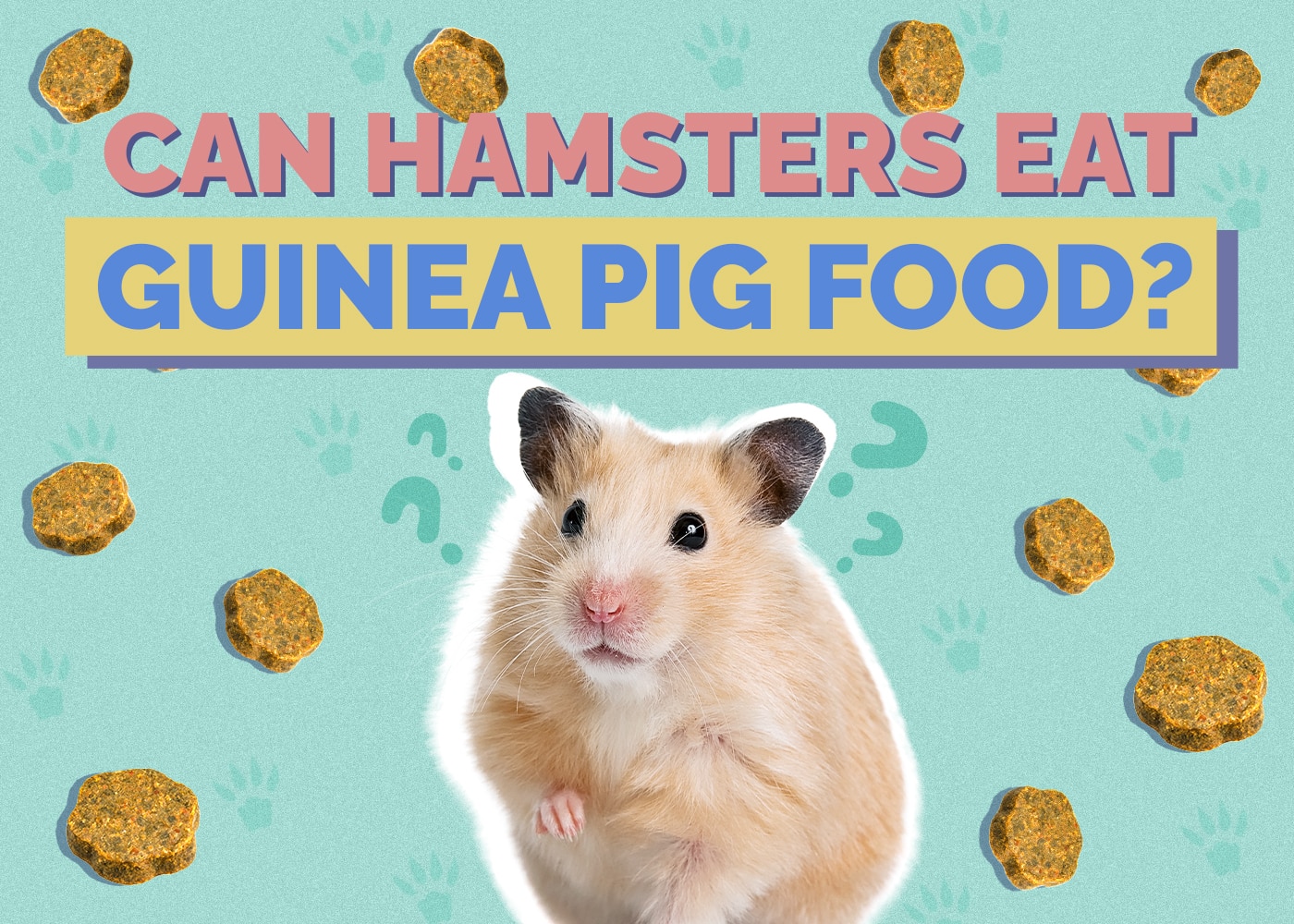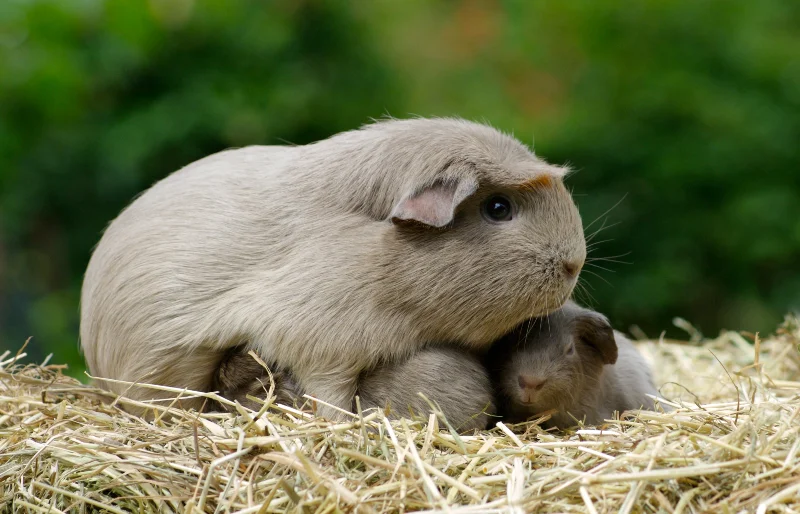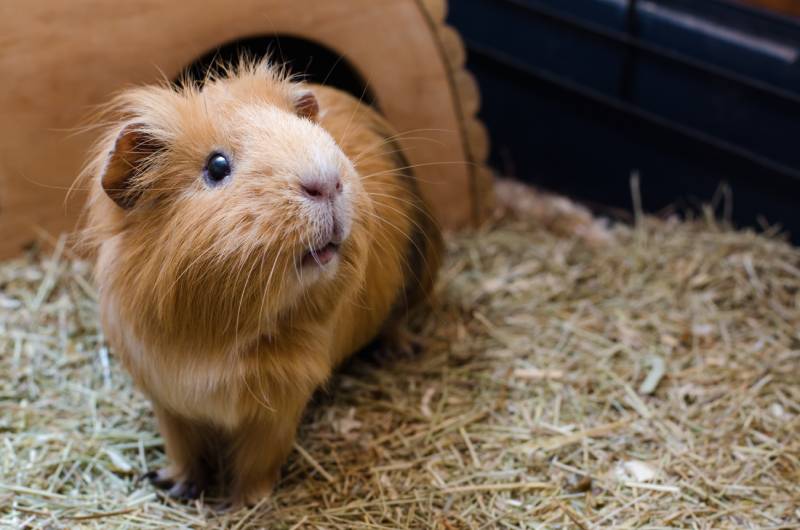Can Guinea Pigs Eat Green Onions? Vet-Approved Benefits & Risks

Updated on

Green onions, or scallions, are commonly used in salads and many other food dishes. They’re a member of the Allium family, so parts of green onions are dangerous for pets—you should never give your guinea pig the bulb of the plant. However, guinea pigs can eat small amounts of the leafy green part of green onions.
This guide will explain more about green onions and how to serve them to your guinea pig safely.
Can Guinea Pigs Eat Green Onions?
Guinea pigs can eat green onions, but it’s not good to introduce them as the main part of their diet or to give them the bulbs of the plants. Only the green, leafy part of the vegetable is safe for guinea pigs.
You should still only give your guinea pig a tiny amount of green onion leaves and monitor their reaction to the food so you can catch signs of developing health issues as early as possible. Only give your guinea pig green onions once or twice a week, and never give them the white bulbs.
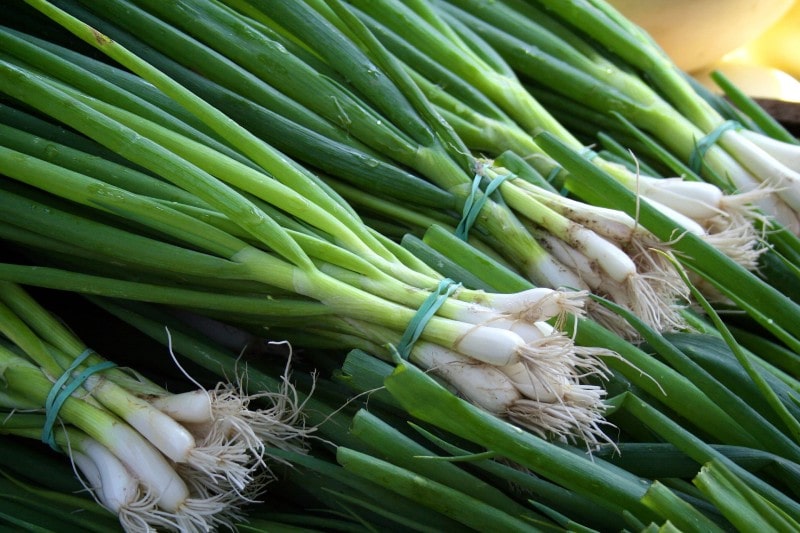
What Are the Health Benefits of Green Onions?
Guinea pigs have many nutritional requirements that their diet needs to meet to ensure their health. When the leaves are fed in moderation, green onions contain several vitamins and minerals that can support your guinea pig’s health.
Most importantly, green onions contain vitamin C, which is a crucial part of a guinea pig’s diet.1 It’s what protects them from illnesses like scurvy. Fiber is another benefit of green onions. It will help support your cavy’s digestive health and keep it working as it should. Finding the right balance of fiber is important, though, as too much can also cause problems.
What Are the Risks of Green Onions?
The biggest risk of feeding green onions to your guinea pig is the fact that it’s part of the Allium family. Many animals are sensitive to the sulfur-containing oxidants in these plants, which include chives, garlic, leeks, and onions. The oxidants can destroy red blood cells when ingested.
While you might know that onions are toxic to dogs and cats, guinea pigs can be affected by Allium toxicosis too.2 The oxidants are also why only giving your guinea pig a small amount of the leaves is important and why you should monitor your pet for any adverse reaction. If they show signs of rapid breathing, increased heart rate, weakness, lethargy, or collapse, take them to a veterinarian immediately.
The calcium content can be a risk too. Guinea pigs are susceptible to kidney and bladder stones. Too much calcium can increase their risk of developing these problems, which can lead to health issues like bloody urine, painful urination, and kidney failure.
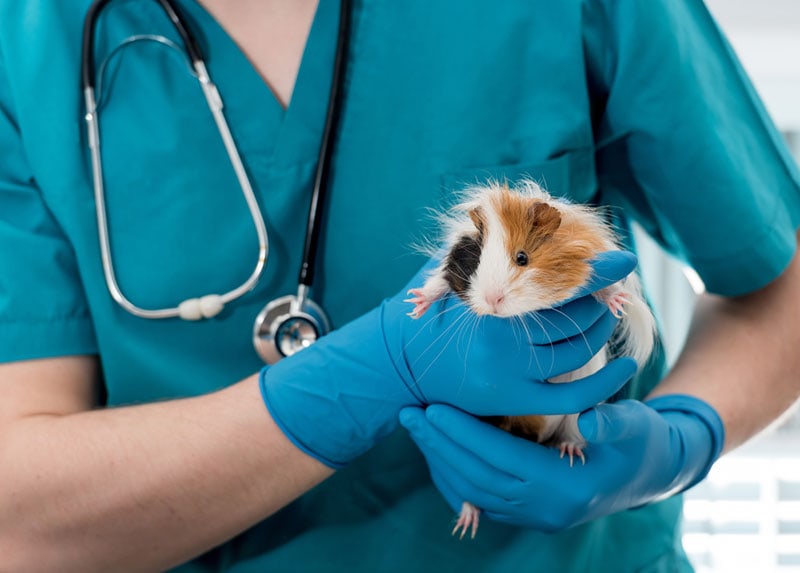
How to Serve Green Onions to Your Guinea Pig
There are several ways to serve green onions to your guinea pig. You should pay attention to all these tips to make sure you feed your guinea pig safely and ensure their health.
Avoid the Bulb
Green onions are part of the Allium family and can be dangerous to most pets. For this reason, never give your guinea pig the bulb of a green onion.
The leafy green part is usually fine in moderation—provided that your guinea pig doesn’t have a bad reaction to it—but you should avoid the bulb altogether. This part of the plant will contain the highest concentration of toxic compounds and increase the risk to your guinea pig.
Serve Them Fresh and Raw
Although you can serve green onions raw or cooked, raw is better. Fresh green onion leaves won’t contain any seasonings or additional fat content from the cooking process. Also, the fresher the green onion leaves are, the crunchier and tastier they’ll be.
Introduce Them Slowly
Guinea pigs have sensitive digestive systems and are prone to suffering from bad gas if the bacteria in their gut are disturbed. Due to this, it’s important to introduce them to new foods slowly. The same is true for green onions.
Only give your guinea pig a tiny amount of green onion at first, and monitor their reaction closely. If they show signs of discomfort, depression, low body temperature, or diarrhea, stop giving them green onions, and head to your veterinarian.
Wash Them
Always make sure any vegetables that you give your guinea pig are thoroughly washed. This will ensure that the food is safe and healthy when your guinea pig eats it.

Alternatives to Green Onions
Green onions can be risky treats even if you only give your guinea pig the leaves. For that reason, it might be better for your cavy to only eat food that you know is definitely safe for them. Fortunately, there are plenty of leafy greens and fruits that guinea pigs adore, so you don’t have to rely solely on pellets.
Here are guinea pig-friendly foods to offer instead of green onions:
This list isn’t all-inclusive but it’s a good place to start. Remember that moderation is key with all these foods, and ensure that your guinea pig also has access to fresh hay.
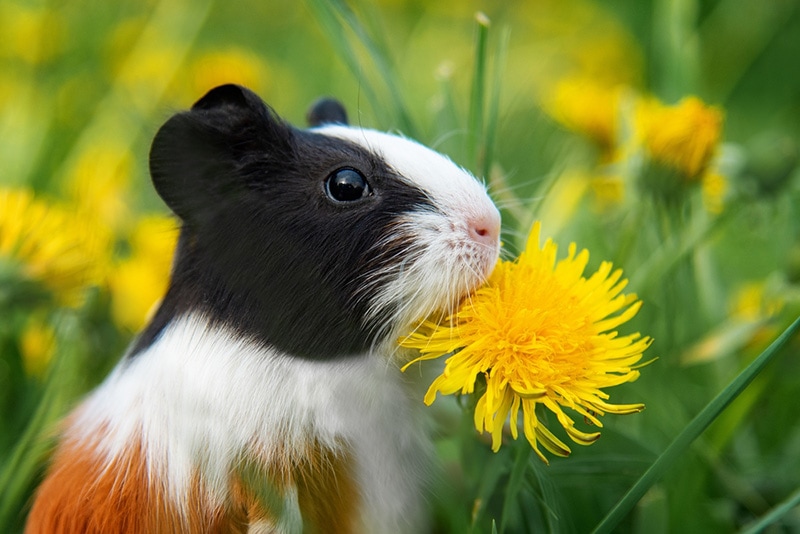
Conclusion
A potentially dangerous vegetable to give guinea pigs is green onions. The white bulbs of the vegetable contain toxins that can destroy red blood cells, which is why green onions and other members of the Allium family are dangerous to pets.
That said, guinea pigs can eat green onion leaves. Just make sure you only serve them in moderation, and pay close attention to any health issues that your cavy might develop. Allium toxicity can be fatal and needs to be treated by a veterinarian.
Featured Image Credit: bigacis, Shutterstock


